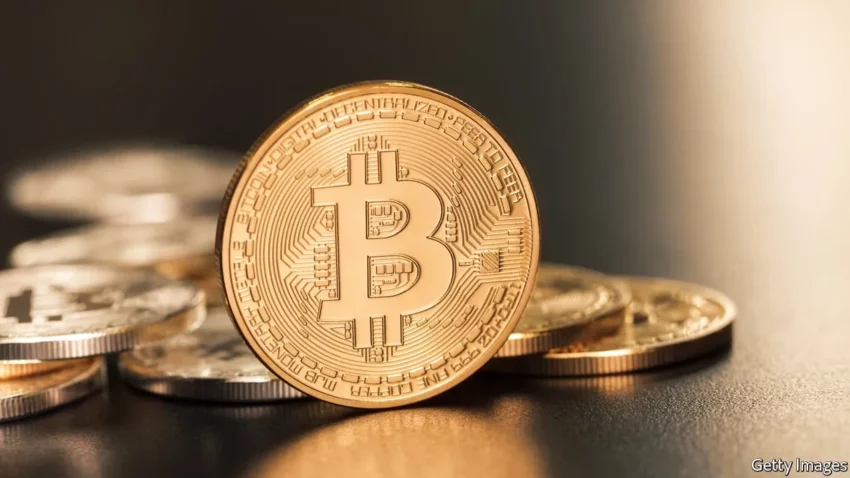Bitcoin, a decentralized digital currency born in 2009, has become a transformative force in finance. Its distinctive attributes, such as decentralization, finite supply, and transparency, have ignited discussions on its potential to rival the US dollar as a standard global currency. Despite considerable obstacles, a sequence of pivotal developments could clear the path for Bitcoin to attain this status. This article examines the possible route for Bitcoin to become a standard global currency and the essential factors necessary for this prospect to unfold.
Mass Adoption and Network Effect
The foremost critical step for Bitcoin to emerge as a standard global currency is widespread adoption. At present, Bitcoin’s adoption is nascent, with a modest proportion of the global populace using it for transactions or as a value reserve. For universal acceptance, Bitcoin must surmount entry barriers, improve ease of use, and establish a solid infrastructure for smooth international transactions.
An increase in Bitcoin adoption by individuals, businesses, and financial entities would generate a network effect, enhancing its utility and worth. Should Bitcoin be broadly accepted for transactions and routine purchases, it could establish a foundation for its recognition and legitimacy as a global currency standard.
Institutional Adoption and Regulatory Clarity
For Bitcoin to be widely accepted as a global currency, it needs more institutional adoption. This means that governments, central banks, and major financial entities must acknowledge and adopt Bitcoin as a valid and practical currency. Such institutional support would enhance its credibility and legitimacy for the public and businesses.
Nonetheless, regulatory clarity is critical for these institutions to accept Bitcoin. Clear, uniform regulations concerning taxation, anti-money laundering (AML) compliance, and consumer protection must be established globally. A regulated environment would draw institutional investors and set up a framework for Bitcoin to function as a global currency.
Stability and Reduced Volatility
Moreover, Bitcoin’s high price volatility is a barrier to its acceptance as a global currency. For Bitcoin to be a dependable exchange medium, its price needs to stabilize. A stable Bitcoin would prompt businesses and consumers to price transactions in Bitcoin, minimizing the risk of drastic value changes.
Creating strong derivatives markets and hedging options could lessen Bitcoin’s volatility, making it a more viable option for global trade and commerce.
Scalability and Transaction Speed
Additionally, Bitcoin’s scalability and transaction speed are concerns, especially during peak network usage. For Bitcoin to serve as a global currency, its blockchain technology must evolve to process more transactions per second without sacrificing security or decentralization.
Advancements like the Lightning Network or other second-layer solutions are vital to enhance Bitcoin’s scalability, which is necessary for its global currency potential.
Financial Inclusion and Accessibility
For Bitcoin to attain the status of a global currency, it must be accessible to people across the economic spectrum, including those lacking access to conventional banking services. This necessitates the improvement of user interfaces, the development of user-friendly wallets, and an increase in the availability of Bitcoin ATMs and other entry points.
Enhancing financial inclusion with Bitcoin could create new opportunities for individuals in developing areas, granting them financial autonomy and the capacity to engage in the global economy.
International Acceptance and Interoperability
For Bitcoin to become a standard global currency, international acceptance and interoperability are required. It would need to be recognized as a valid payment method by businesses, institutions, and governments around the world. Bitcoin-denominated cross-border transactions should be smooth and economical, removing the need for currency exchange multiple times.
Moreover, international regulatory collaboration and the creation of uniform standards are critical to promote interoperability among different financial systems and to ease Bitcoin transactions across borders.
Trust and Security
For a standard global currency, trust and security are crucial. The decentralized nature of Bitcoin and the blockchain technology that underpins it have so far provided significant security. Ongoing efforts to bolster security, prevent hacking, and mitigate potential risks are vital for building broad trust and assurance in Bitcoin as a dependable currency.
In Conclusion
Bitcoin’s potential to become a standard global currency comparable to the US dollar is a lofty goal that depends on several critical developments. Factors such as mass adoption, institutional acceptance, regulatory transparency, price stability, scalability, financial inclusion, international recognition, and trust must all be addressed.
While Bitcoin’s journey to standard global currency status is challenging and uncertain, its disruptive potential has already transformed the financial landscape. As technology evolves and societal attitudes towards money continue to shift, Bitcoin’s path may become clearer. Ultimately, time will tell whether Bitcoin fulfills its potential as a standard global currency, revolutionizing the way we exchange value on a global scale.
